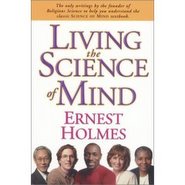The Son of Man (John 3:14)
As Moses lifted up the serpent in the wilderness, so Jesus tells us the son of man also must be lifted up. By looking and believing in this son, we are saved. Jesus could not have been referring to his own personality, for he knew that this would soon be taken from the sight of humanity. We must look for a deeper meaning.
We must be lifted up, that is we must realize our Divine nature and relationship to the Truth of God. This relationship is one of complete unity. The cross represents the tree of life and may also be thought of as the tree of unity.
When Moses lifted up the serpent, those who looked upon it were healed. This understanding produced a consciousness of unity, which had healing power. The Life Principle is either looked upon as material or spiritual. When looked upon as material, it casts us from the Garden of Eden – the garden of the soul. The Life Principle viewed as matter is death, but viewed as life and unity, it becomes life everlasting. Moses elevated the Life Principle and Jesus did the same. The son of man must be lifted up, even as Moses lifted up the Life Principle, symbolized by the serpent.
We are reminded here of another symbol, one used in the Old testament, that of the serpent which cast Adam and Eve out of the Garden of Eden. The serpent meant the outer rim of spiritual existence – the Life Principle viewed from an isolated and materialistic basis. The worship of material existence, apart from God, cast Adam and Eve from the Garden of Perfection. The attempt to live in effects, apart from the true Cause, always does this.
The story of the Fall, taken literally, would be ridiculous to the point of absurdity; hence it is necessary to look for a deeper meaning. The writer was trying to teach a Cosmic lesson ….the lesson of right and wrong. The Garden of Eden typifies life in its pure essence. Adam means man in general, generic man. Man exists in pure Life and has all of Its agencies at his command. This is the meaning of his being told to till the soil and enjoy the fruits of his labor.
The Tree of Life is our real being, and the tree of knowledge of good and evil means the possibility of dual choice – that is, we can choose even that which is not for our best good. Man is warned not to eat of the fruit of this tree, for it is destructive.
Eve, the woman in this case, was made from the rib of Adam. The story suggests the dual nature of man as a psychological being. The woman is made from the man. She must have been in him else she could not have been made out of him, and the story clearly states that she was taken from his being.
Adam and Eve are potential in all of us. The serpent represents the Life Principle, viewed from a material basis, which beguiles us in this way: he says evil is as real as good; that the devil has equal power with God; that negation equals positive goodness, and that the Universe is dual in Its Nature. From the acceptance of this argument, we experience both good and evil. And should we come full-orbed into individuality, without having learned the lesson of unity, we should live forever in a state of bondage. This is the meaning of God saying, “He shall become as one of us and live forever.” The eternal Mind does not wish us to live forever in bondage, and this is what would happen unless we first learn the lesson of right and wrong.
And so that part of us which can be fooled east of the fruit of dual experience and in so doing reveals its own nakedness. The native state of man is one of purity, peace and perfection, and it is only when we compare these with impurity, distress and imperfection, that we are revealed as naked. Emerson tells us that virtue tastes of impurities that it becomes naked and must hide form itself.
The Voice of God, “walking in the garden in the cool of the day,” means the introspective and meditative part of us, which in its moments or pure intuition and reason, sees the illusion of a life apart from God or Good. Error is ever a coward before Truth, and cannot hide itself from Reality, which sees through everything, encompasses all and penetrates even the prison walls of the mind with Its clear effulgence.
The conversation between God and Adam and Eve, in the Garden of Eden, represents the arguments that go on in our own minds, when we try to realize the truth. These arguments are familiar to all. The expulsion from the Garden is a necessary and logical outcome of tasting dual experience. If we believe in both good and evil, we must experience both.
But, lest we should become discouraged, we remember that Moses lifted up the serpent in the wilderness and those who looked upon it were healed. The serpent means the Life Principle. Viewed from a material basis alone, it casts us from a perfect state. Lifted up, that is, viewed from a true meaning of the Unity of God, it heals. Here is the choice again, only stated in different words. The difference is not in the thing itself, but in the way we look at it.
The son of man is every man who ever lived or ever will live. Our life is from Spirit, not from matter. This viewpoint is the truth and truth alone makes us free. We come into everlasting life as we elevate this inner principle to a sense of the unity of man with God. Each must lift himself to the cross of the Tree of Life, thus edifying himself with Reality. The concept is glorious and the reward certain. The revelation of the self to the self – this is the great lesson of lessons.
Science of Mind
Wednesday, July 12, 2006
Subscribe to:
Post Comments (Atom)




No comments:
Post a Comment